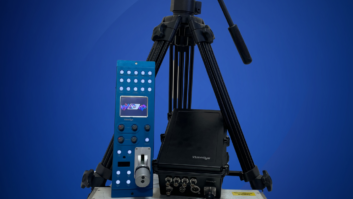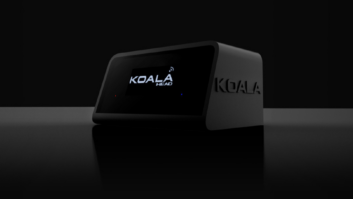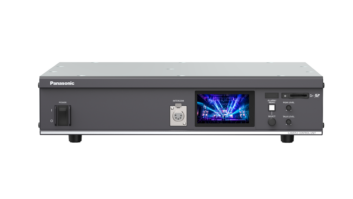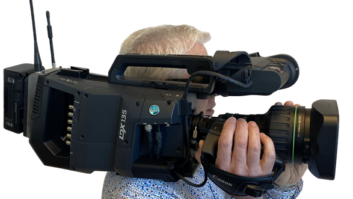According to Hitachi the EU’s anti-dumping levy on Japanese cameras, which is currently being considered for renewal and possible extension, is actively restricting broadcasters’ camera choice, writes David Fox.
Two of the manufacturer’s new products launched at IBC – a low-cost 14-bit widescreen switchable camera and a digital SD triax claimed to offer the longest transmission length and highest quality – can only be sold to non-EU countries.
“We’ve been very good boys for 15 years. We have the lowest duty rate of any [of the Japanese] manufacturers, because we’ve kept to the rules, but even so, we have a 67% duty rate placed on camera systems above a certain level,” complained Paddy Roache, director and general manager, Hitachi UK.
“The impact, unfortunately, has grown with the growth of the EU. This is becoming the world’s biggest market and to have one company seeking to restrict free trade in that market doesn’t seem right,” Roache added. “We have a whole series of studio TV cameras and systems that we’ve never even tried to release in Europe.”
If the most recent submissions by Thomson about dumping are upheld, the levy could be applied to many more cameras. However, Grass Valley insists that results will not be as widespread as its competitors make out – especially as it doesn’t have products in areas like stand-alone camcorders or consumer cameras, so there could hardly be unfair competition.
“We believe some of our competitors are jumping to conclusions and speculating. We would ask everyone to respect the process,” said Jeff Rosica, senior VP, worldwide marketing and technology, Grass Valley.
Thomson has found that “problematic behaviours” still exist in the broadcast market, but, for the levy to be renewed or extended, there has to be proof of dumping, damage, and anti-competitive behaviour. The only reason the investigation is so wide is that the EU has to have the ability to look at the wider implications. “Everybody has their chance to make their position known and their facts known,” added Rosica.
The EU is expected to make a decision next year.







